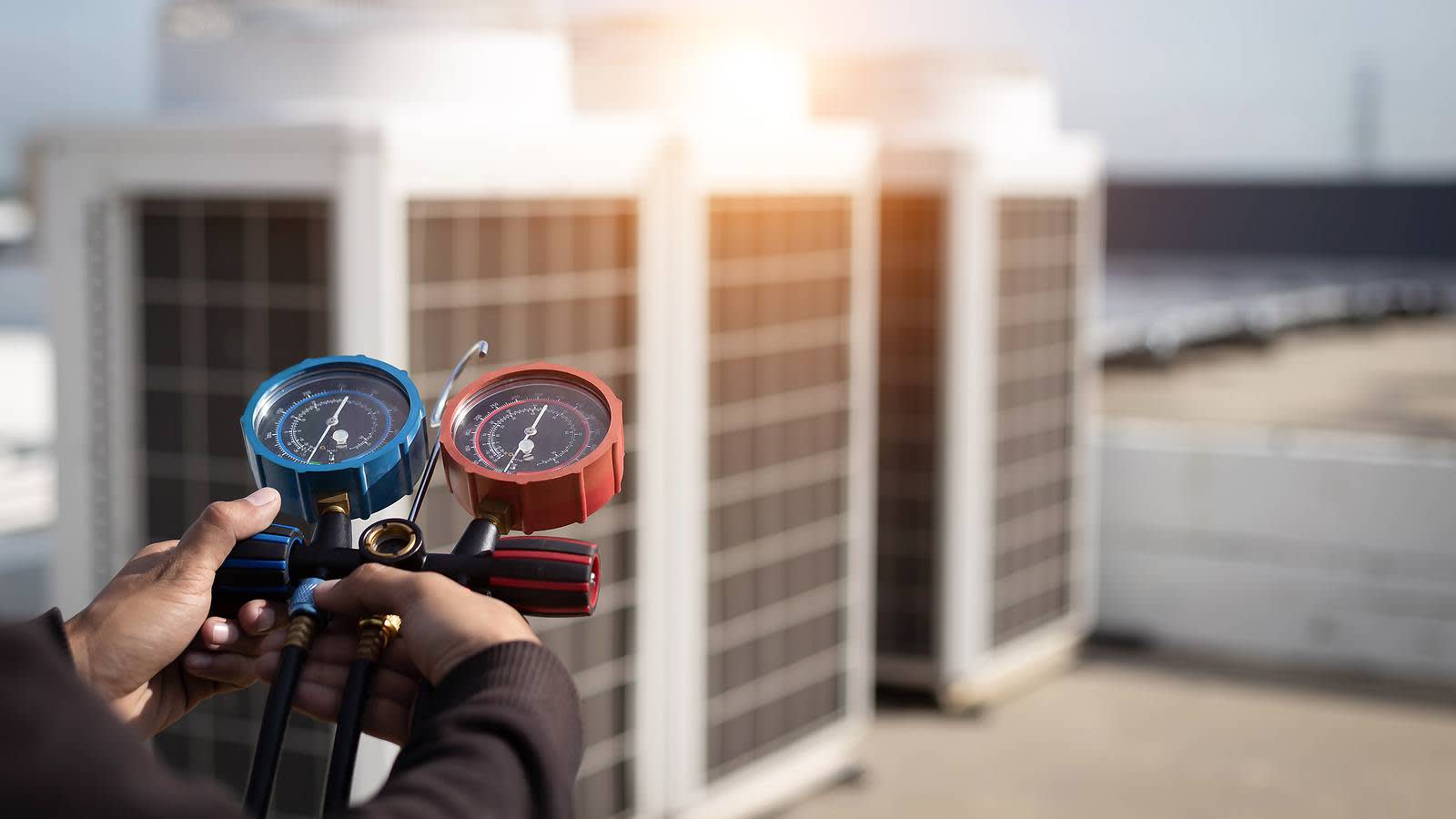Air source vs ground source commercial heat pumps: what’s the difference?
All heat pumps will help decarbonise your organisation’s heating. But how can you decide whether an air source heat pump (ASHP) or ground source heat pump (GSHP) is the right choice for you?

Why should my organisation consider heat pumps?
Nearly one fifth of all of carbon emissions in the UK are the result of heating buildings. So, if you’re serious about reducing your carbon footprint, your heating’s inevitably going to play a part.
Heat pumps are the only scalable and readily available technology that’s been proven to decarbonise heating. Both ASHPs and GSHPs can help your organisation to do that, while also helping to reduce your running costs. And they can help you achieve the goals on your environmental, social and governance (ESG) agenda, too.
How do heat pumps work?
All heat pumps work by extracting the thermal energy that’s already present around your building in order to use it for heating. They generate heat by concentrating energy from the environment, which means they don’t emit carbon dioxide or polluting flue gases in the same way as conventional fossil fuel boilers.
How does an air source heat pump work?
ASHPs draw the heat from the air outside your buildings. That heat is then absorbed into a fluid called a refrigerant. The refrigerant goes through a heat exchanger and then into the heat pump, compressing the refrigerant, increasing the temperature. Then it transfers that heat to the water which runs in your organisation’s heating systems. Generally this is known as the vapour compression cycle which has been used in various forms since 1805.
How does a ground source heat pump work?
GSHPs are very similar to ASHPs except that they extract the heat from the ground beneath and around your buildings rather than the air. They do this through a series of coiled pipes buried in trenches or boreholes. These pipes are usually filled with a brine which transfers the low temperature energy to the refrigeration circuit. This then raises the temperature and transfers the heat at a higher temperature to the water that drives your heating.
Can heat pumps support demand flexibility?
Both ASHPs and GSHPs use electricity to condense the heat they’ve extracted and use it to heat your organisations. If you partner with a flexibility provider like Drax, you can turn down your heat pumps at times when demand for electricity is high (and when the cost is high too).
By optimising your heat pump in this way, you can play your part in increasing demand flexibility as the grid is decarbonised. You could also generate extra income through flexibility markets.
It’s easier to benefit in this way if you choose a GSHP solution. That’s because the temperature below ground tends to stay relatively stable all year round. At times when demand for electricity is high, air temperatures are usually low. So an ASHP would need to use more electricity to condense the heat for your system. This means it’s unlikely that you’d be able to turn down an ASHP at such times and still heat your organisation’s buildings.
Which type of heat pump is right for you?
Air source heat pumps (ASHPs)
- Typically cheaper to install
- Less efficient than GSHPs in extremely cold weather, because ambient air temperature is lower than the temperature below ground. This means that you’ll need to use more electricity to raise the temperature of the air extracted.
- Approximately 90% or more of the heat pumps installed are air source
Ground source heat pumps (GSHPs)
- Require a comparably higher investment
- Require higher level of groundworks, along with more space
- More suitable if your organisation owns the building being heated or is planning to stay there for a significant period
- Quieter to run
Save 10% on your heat pump
Drax customers can benefit from our partnership with heat pump specialists Clade. This allows you to cut reduce the cost of purchasing an ASHP or GSHP for your organisation by 10%.
Learn more about our partner offers

